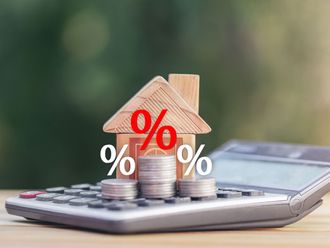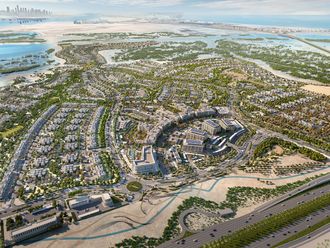Riyadh: Saudis will soon find it more costly to keep their land as a savings account.
The Shura Council, an advisory body, approved a tax on undeveloped land in cities as the kingdom struggles to tackle a housing shortage without resorting to costly development in the desert. The regulation mandates a levy to be paid by owners of so-called white land, urban plots within cities often complete with roads, water supply and street lights that lie empty because their owners have no incentive to build on them.
“The fee will fundamentally change the market,” said Jamil Ghaznawi, head of Saudi Arabia for broker Jones Lang LaSalle Inc. “We are talking about a considerable fee that will shift the power from the landowners to the developers once land investors start feeling the pain of having to pay.”
The council recommended a tax of 2.5 per cent of land value, local media reported. Pushing owners to build on empty plots or sell them will enable the government to avoid desert construction to solve a shortage estimated at 1.5 million affordable homes. In Saudi Arabia, land is often used as a way to store wealth and plots are traded multiple times, inflating prices and disconnecting the land from its development value.
King’s approval
The Housing Ministry estimated empty plots made up around 40 per cent of the capital Riyadh in 2013 at a time the state was spending billions of dollars building outside the cities.
King Salman gave his initial approval of the tax in March. Details including the time frame for implementation have yet to be determined, Shoura Council President Abdullah Al Shaikh said in a statement to the official Saudi Press Agency. The tax will be applied in stages, he said.
Many Saudi developers earn more on trading land than building on it. Shares of developers have tumbled since the debate on the white-land tax gathered momentum. Dar Al Arkan slid 1.6 per cent Tuesday, closing at 6.2 riyals, its lowest level in four years. Saudi Real Estate Co., known as Serco, declined 1.2 per cent.
The council’s decision also comes as the world’s largest oil exporter grapples with plunging oil prices, though it says the tax isn’t aimed at raising revenue.
The housing ministry declined to comment. fee. Calls to the minister’s office were not answered.
‘Appropriate housing’
By making land costly to hold, the state will help “stimulate the creation of appropriate housing at appropriate prices for all citizens,” Housing Minister Majid Al-Huqail said in a statement to Saudi Press Agency last month. In particular, the tax will increase the supply of housing in city centers, “which are monopolised by investors in the real estate sector.”
The issue of white-land tax has stirred debate among Saudis, with local newspapers following the issue daily in a country where new kings give citizens handouts and income tax doesn’t exist. Some complained that taxing one asset class isn’t fair since many people in Saudi Arabia use land as their savings. Others speculated about the government’s motive for imposing the tax after oil prices halved.
‘Thought Problem’
“In reality, housing is not a problem of resources, it’s not a problem of land — it’s a problem of thought,” the housing minister said last month. Poor urban planning, the lack of a saving culture and unrealistic expectations from citizens should all be addressed, he added.
Soon after, the phrase “housing is a thought problem” was quickly turned into a hashtag on Twitter, attracting hundreds of satirical posts and political cartoons.
Still, the decision to tax empty land is “a very good message for the people,” said Saud Al Tamamy, assistant professor of political theory at King Saud University. With “very effective implementation,” the regulation could help middle class Saudis own homes instead of renting, he said.
The tax will provide “good revenue for the government” and help diversify the kingdom’s income away from oil, he said.
“The goal of imposing fines on white land is to work toward achieving a balance between supply and demand to address the housing crisis,” the Shoura Council said on its official Twitter feed. “The state does not aim to collect funds or support its financial resources through imposing fees.”












